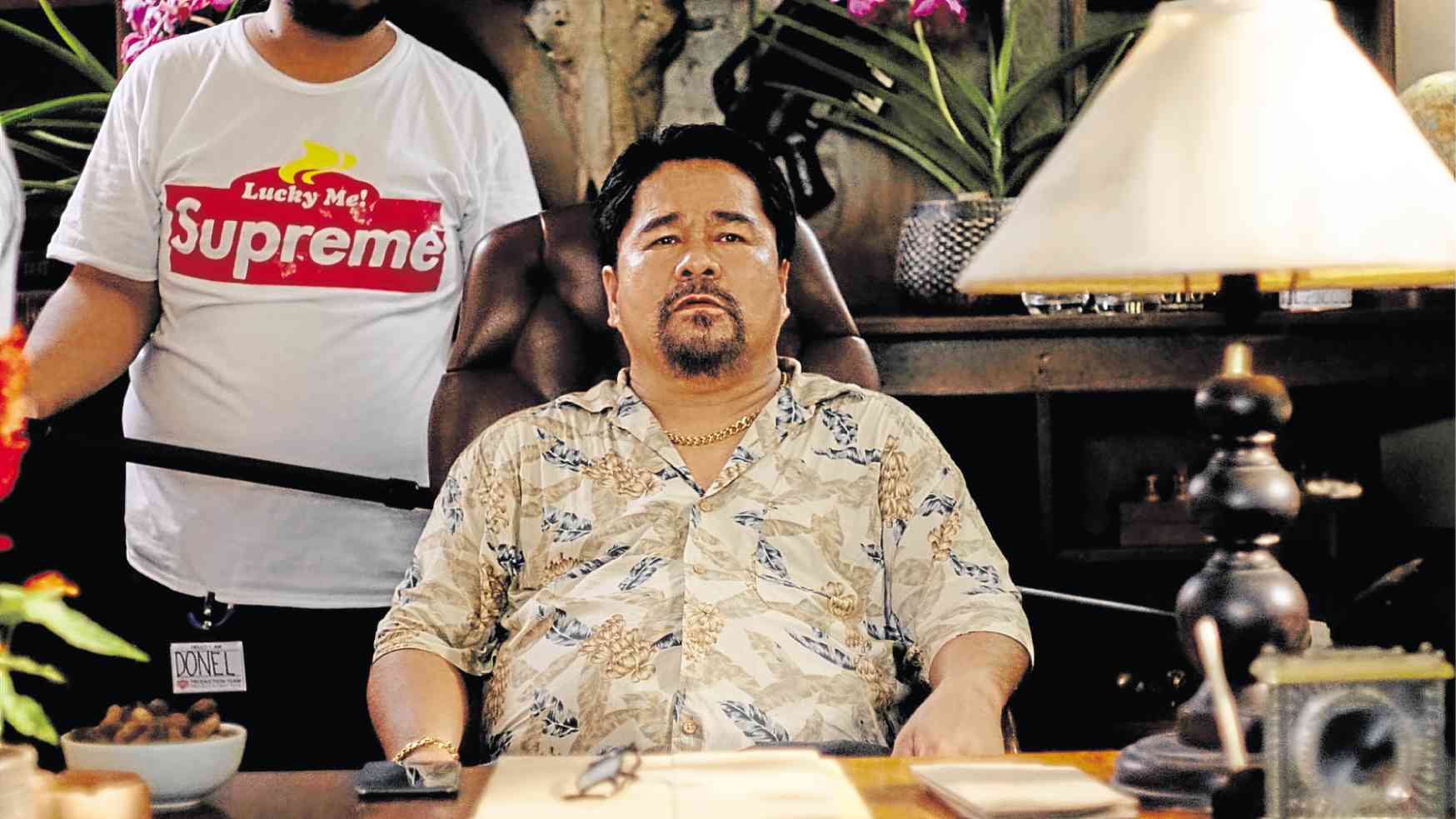For actor Soliman Cruz, the toughest phase of his four-part drug rehabilitation program is the final one—the stage he is currently on.
“Nasa Phase 4 na ako ng treatment,” he told the Inquirer, after a recent press conference for the CineFilipino fest, where he has two entries: Dwein Baltazar’s “Gusto Kita With All My Hypothalamus” and Bor Ocampo’s “Hitboy.”
He called it the “transition” stage. “This is the last part. I’ve been sober for three years now,” Soliman said. “Ito ’yung phase na magiging malaya ka na ulit. Actually, nakakatakot nga.”
Freedom is scary because it makes you confront the inevitable question, he explained. “How do you handle freedom again…na hindi ka magpapasakop sa nakaraan?”
He recounted that when he was on Phase 3, a chaperone accompanied him every time he ventured out of the facility where he’s staying. “Now I can go to tapings and shootings on my own.”
Next big challenge
Soliman has finally earned the right to make his own decisions again, and that, he admitted, is the next big challenge of his life.
Five years ago, Soliman’s struggles with addiction were featured in TV shows. Not a few admirers of his work as an actor were heartbroken to see him roaming along Roxas Boulevard as a vagrant—seemingly losing his battle with his inner demons.
Fast forward to the here and now, Soliman is well on the road to recovery, with two films in cinemas, a digital series (“Spirit Reawakening”) in the works and a play (“Sincerity Bikers’ Club”) tucked under his belt.
Interestingly, Soliman’s “comeback” play, which will have a rerun at the Virgin Labfest next month, tackles the government’s war on drugs. Of course, he has his own thoughts on the controversial socio-political issue. Suffice it to say, he considers “addiction” a medical problem.
Ongoing journey
“Addiction is a disease,” he asserted. “Meaning, there is treatment. It’s a lifelong illness… kaya panghabang-buhay din siyang ginagamot.”
It goes without saying that society should not give up on those who have lost their way. “Bawat isang tao, may hope. May redemption.”
That is precisely the lesson of Soliman’s ongoing journey.
He owned up that he couldn’t have made it out of the dark tunnel without the love and support of loyal friends. “Nag-intervention sila. Nakita nila na kailangan na akong ipasok sa isang controlled environment like a rehab center.”
An anonymous sponsor, he related, makes sure that all his needs in the treatment facility are being met. In return, he is giving back by sharing his thespic skills to his fellow interns.
“I give acting classes in the rehab facility,” he remarked. “I am closely monitoring the students’ development. As of now, we’ve done two productions: ‘Sampung Kuwento sa Pasko’ and ‘Ang Pinakamakisig na Lalake na Nalunod sa Buong Daigdig.’”
He is now working on two more plays (“Dear Stage Mother” and “Bayani”) with the wards of the center.
When he was ready to act again, he opened his own Facebook account. “Tinuruan ako sa center na mag-internet. So I can announce that I am back.”
He got his own manager (Ferdinand Lapuz) and has been auditioning for different projects. “Whenever I have a meeting outside, I just ask permission from the facility. Then after work, I go back to the center.”
Reconnection
He also had the chance to reconnect with his children. “I am allowed to see them every weekend. For the shoot of ‘Hitboy,’ my daughter Tala accompanied me as my PA (production assistant).”
“Kuya Sol has lots of stories, but he will not share them with you if you don’t ask,” Dwein, the young director of “Hypothalamus,” quipped. “When I describe him to his old friends and coworkers, they tell me that it was as if I got to work with a different Sol.”
On the very youthful set of “Hypothalamus,” Soliman stood out as the most experienced, of course. “At first, they regarded me as the tito or kuya of the group. But as the shoot went on, they no longer got intimidated.”
Indeed, it’s easy to get daunted by Soliman’s deep well of emotions—on or off the set.
He looked back on his life on the streets: “Sa kalsada, nabago ang pananaw ko tungkol sa kahirapan. Doon ang mga tao, mahirap pagdating sa materyal na bagay, pero hindi sila mahirap pagdating sa kuwento.”
Reservoir of stories
The homeless have a seemingly bottomless reservoir of stories, he recalled. “Kailangan nilang gumawa ng kuwento araw-araw kasi kung hindi, magiging malungkot sila. Doon, wala akong nakitang tao na hindi nakikipag-usap sa kapwa nila. Hindi sila umiiyak dahil sa kahirapan. Nagiging komedya ang kahirapan sa kanila.”
No question seemed off-limits to Soliman. But when asked about the brouhaha raging in his alma mater, the Philippine High School for the Arts in Makiling, he turned reticent, saying he didn’t really follow the debates surrounding the renaming of the Maria scholarship to accommodate Imelda Marcos.
Soliman, however, has his own opinion on the enduring and restorative power of art. “Hindi mo naman makukulong ang sining. Kahit ano pa ang ipangalan mo diyan, hindi ’yan masusupil.”
He reiterated that art continues to play a key role in his life, then and now. “Mahalaga ang sining sa paghubog ng aking pagkatao. Naging importante rin ang sining sa aking paggaling.”
Art is healing, after all.
